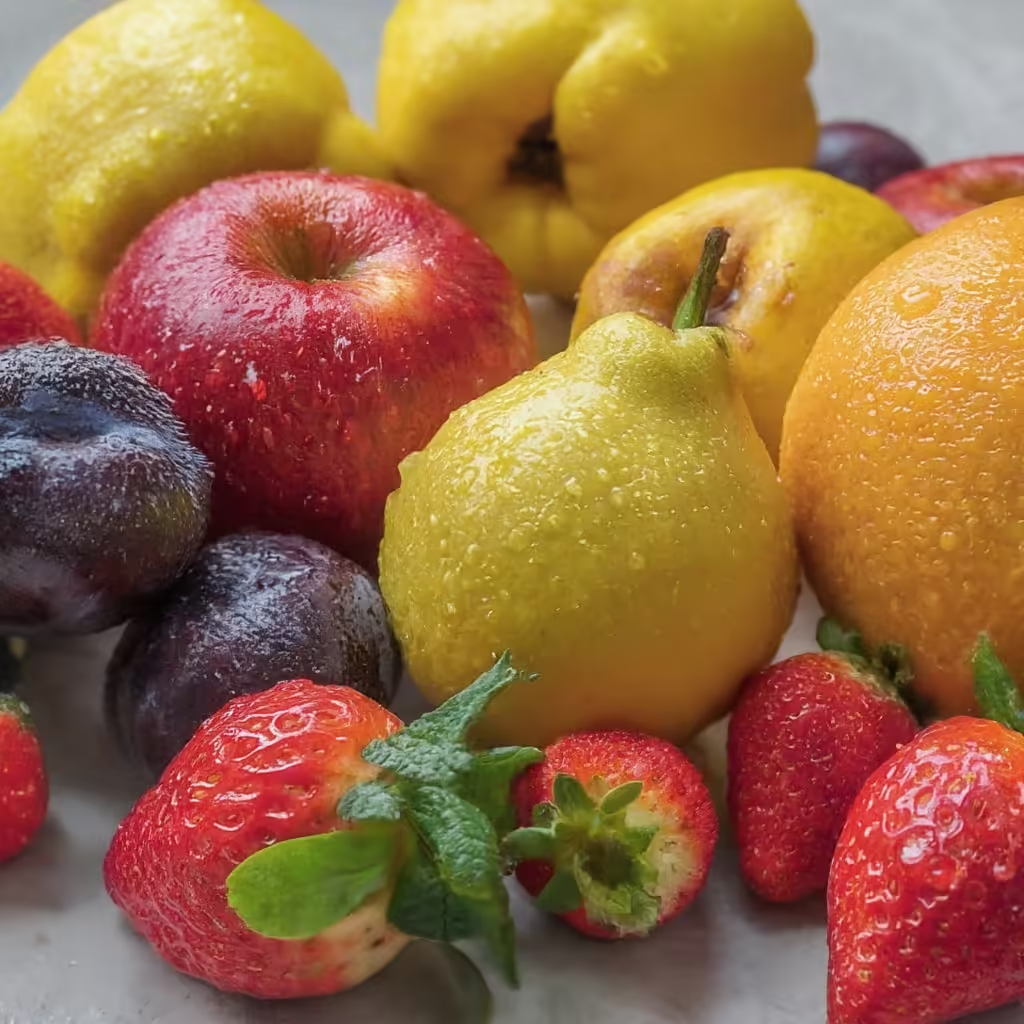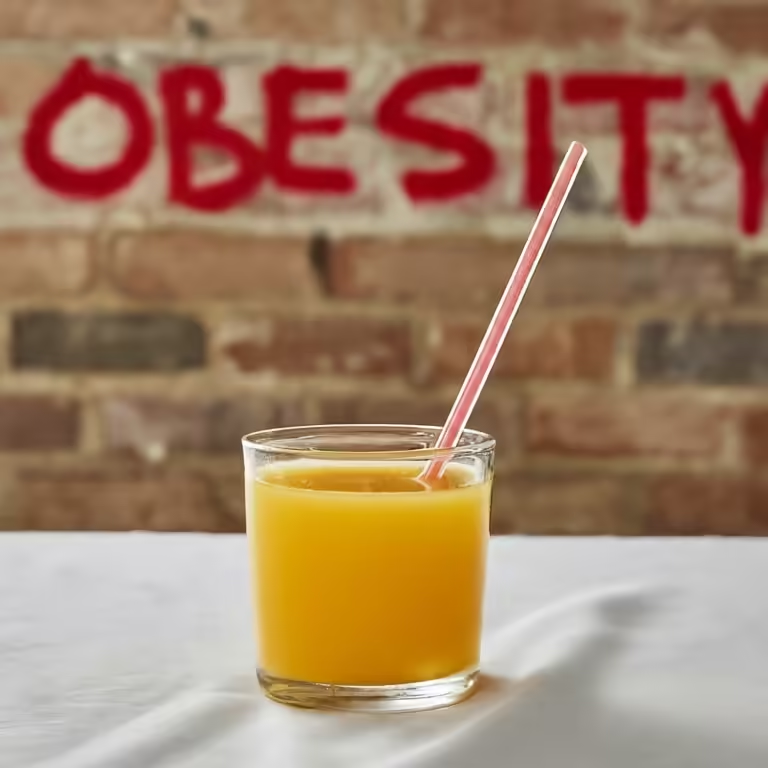Medically reviewed by Dr Itender Pal Singh
New research suggests that limiting 100% fruit juice intake could be a key strategy in combating childhood obesity, especially in younger children. Published in JAMA Pediatrics, this study highlights how fruit juice consumption contributes to weight gain, raising concerns about its impact on children’s health.
The Childhood Obesity Epidemic
With 1 in 5 U.S. children between ages 2 to 19 medically classified as obese, childhood obesity is a growing crisis. Obesity in children leads to lifelong health risks like high blood pressure, type 2 diabetes, and sleep apnea. Studies show that overweight children often remain obese in adulthood, making early intervention crucial. Also research is there, which shows children who are obese in childhood are likely to be obese in adults too.
Limiting Fruit Juice Intake
The research led by the University of Toronto analyzed data from 42 prior studies involving 46,000 children, ages 1 to 15, to investigate the relationship between drinking 100% fruit juice and weight gain. The findings are alarming: each additional serving of juice increased the children’s body mass index (BMI), a common metric for measuring obesity. But should you avoid fruit juice totally. Let’s discuss it –
Can I drink 100% real fruit juice-
100% pure fruit juice is good source of nutrients like Vitamin C and potassium but drinking too much of them can cause problems because still there is lot of sugar and calories. Fiber is very low. And they are very low in phytonutrients that raw fruits have.
Vegetable juice – Best of all.
Lycopene in tomato juice may help lower risk of prostate cancer. Beetroot ay help to control blood pressure. Pulpy vegetable juice have some fiber but always less that whole vegetable and fiber always reduce hunger. It has less sugar and fewer calories than fruit juice but check for sodium always.
Juice cocktails- Worst of all.
Juice cocktail , juice flavored beverage and juice drink.All of them have very low amount of real juice drink. Main ingredients are water, very low amount of fruit juice and sweetener like high fructose corn syrup. Nutritionally they are as same as soft drinks- rich in sugar and calories and low in nutrients. Drinking water is better than drinking those.
What’s the good choice juice then ?
Pomegranate juice is best. If you want to drink 1 glass of juice, pomegranate juice is best choice. It’s still high in sugar and calories but it has lot of anti-oxidants. It’s anti-oxidant power is even more than red wine or green tea.
Cranberry juice– Cranberry juice is also good choice. It contains a lot of Vitamin C for your immune system. It may also protects us from UTI (Urinary Tract Infections) by preventing buildup of bacteria in urinary tract.
Red grape juice– Another good choice is red grapes juice. It has flavonoids and resveratrol
Orange juice – Another good choice. As it contains loads of Vitamin C. It has fewer calories than red grapes, pomegranate etc but it has fewer antioxidants than those.
Kids love fruit juice but it should be given limited to them. AAP recommends no more than 4-6 ounce of 100% fruit juice for kids younger than 6 and 8-12 ounces for age 7 to 18.
But best choice is whole fruit. You will get all nutrients with flesh and pulp along with fiber and will make you feel full, this consuming less calories as well.

Fruit Juice Vs. Whole Fruit
Though 100% fruit juice contains no added sugars, it lacks the essential fiber found in whole fruit, making it less filling while delivering high calories. This difference is significant: juice leads to rapid absorption of fructose, causing potential issues in the liver and increasing cholesterol levels.
Juice Fuels Weight Gain in Kids
According to the study, children who regularly drank 100% fruit juice saw a notable increase in BMI, especially those aged 8 and under. Compared to kids consuming zero-calorie drinks like water, juice-drinking children were more prone to weight gain. Interestingly, the type of juice—whether apple, grape, or citrus—didn’t matter. The effect was the same across the board.
Public Health Recommendations for Parents
The American Academy of Pediatrics (AAP) has long advised against giving fruit juice to infants under 1 year and suggests limiting toddlers’ intake to 4-6 ounces per day. This study reinforces those guidelines. Pediatricians emphasize that whole fruits, which offer fiber and other nutrients, should replace fruit juice in a child’s diet. Juice is not only unnecessary but potentially harmful if consumed in excess.
Childhood Obesity
Children consuming more fruit juice may be at higher risk for severe obesity-related health problems like high cholesterol, asthma, and type 2 diabetes. The Centers for Disease Control and Prevention (CDC) warns that obesity is a significant health crisis that starts early in life. In this study, kids who drank water or zero-calorie beverages showed healthier BMIs compared to those who consumed fruit juice.
The Hidden Calories in Juice
- 100% Fruit Juice Serving Size: 8 ounces
- Lack of Fiber: Juice contains little to no fiber, unlike whole fruits
- Liquid Calories: Studies suggest that liquid calories, like those in juice, lead to more weight gain than solid calories
- Fructose Impact: Rapid absorption of fructose in the liver affects cholesterol and weight regulation
The Real Impact on Children
In this study, children who drank fruit juice regularly gained significantly more weight than their peers who drank zero-calorie drinks. Parents should be aware that even “healthy” juices can contribute to childhood obesity, creating a lifetime of health challenges.
Time to Rethink Juice for Kids
This study underscores the importance of reevaluating fruit juice in children’s diets. While juice may seem like a healthier option, the reality is that it contributes to weight gain, obesity, and related health risks. Parents and caregivers should consider switching from juice to water and whole fruits to ensure their children’s long-term health.

Do you give your child fruit juice regularly? It might be time to reconsider! Shift to healthier alternatives like water and whole fruits to keep your kids healthy and active.
Sources–
American Academy of Pediatrics (AAP) – Recommendations on limiting fruit juice intake for infants and children.
Centers for Disease Control and Prevention (CDC) – Data on childhood obesity rates and related health risks.
University of TorontoStudy – The analysis involving 42 studies and nearly 46,000 children, highlighting the link between 100% fruit juice consumption and weight gain in children.




Pingback: Cellphones and Brain Cancer: What Decades of Research Reveal - Healing Doctor